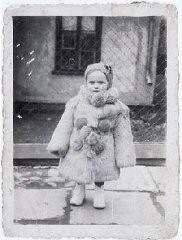You searched for: krakow
<< Previous | Displaying results 81-90 of 152 for "krakow" | Next >>
-
Murray Pantirer describes one of Oskar Schindler's rescue efforts
Oral HistoryThe Germans occupied Krakow in 1939. Murray's family was confined to the Krakow ghetto along with the rest of the Jewish population of the city. In 1942, Murray and a brother were deported for forced labor in the nearby Plaszow camp. In May 1944, his brother was transferred to Auschwitz and Murray was sent to the Gross-Rosen camp in Germany. Murray was later transferred to Bruennlitz, in the Sudetenland, as a forced laborer for German industrialist Oskar Schindler. Schindler helped the Jews who worked for…
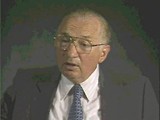
-
Murray Pantirer describes the "Schindler Jews" in the Bruennlitz factory
Oral HistoryThe Germans occupied Krakow in 1939. Murray's family was confined to the Krakow ghetto along with the rest of the Jewish population of the city. In 1942, Murray and a brother were deported for forced labor in the nearby Plaszow camp. In May 1944, his brother was transferred to Auschwitz and Murray was sent to the Gross-Rosen camp in Germany. Murray was later transferred to Bruennlitz, in the Sudetenland, as a forced laborer for German industrialist Oskar Schindler. Schindler helped the Jews who worked for…
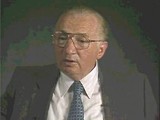
-
Leopold Page describes meeting German industrialist Oskar Schindler
Oral HistoryLeopold was a teacher in Krakow, Poland, when World War II began in 1939. While serving in the Polish army, he was captured by Germans. Leopold escaped from a prisoner-of-war transport. Soon after, he met the German industrialist Oskar Schindler. The two became friends. Leopold was forced to live in the Krakow ghetto. He later worked in Schindler's factory in Bruennlitz. He and the other Jews who worked there were treated relatively well and protected from the Nazis. After the war, Leopold moved to the…
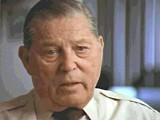
-
Ludmilla Page describes German industrialist Oskar Schindler
Oral HistoryLudmilla was born to an assimilated Jewish family in Kishinev, Romania. She and her mother, a physician, were living in Poland when the Germans invaded on September 1, 1939. They were taken to Krakow. Ludmilla was forced to live in the Krakow ghetto; her mother was sent to the Warsaw ghetto. Ludmilla worked in a factory at the Plaszow labor camp for a businessman who was a friend of the German industrialist Oskar Schindler. In October 1944, Schindler attempted to save some Jewish workers by relocating them…
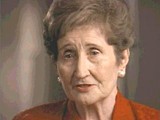
-
Leopold Page describes an act of sabotage and clandestinely listening to radio broadcasts while in Bruennlitz
Oral HistoryLeopold was a teacher in Krakow, Poland, when World War II began in 1939. While serving in the Polish army, he was captured by Germans. Leopold escaped from a prisoner-of-war transport. Soon after, he met the German industrialist Oskar Schindler. The two became friends. Leopold was forced to live in the Krakow ghetto. He later worked in Schindler's factory in Bruennlitz. He and the other Jews who worked there were treated relatively well and protected from the Nazis. After the war, Leopold moved to the…
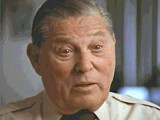
-
Ludmilla Page describes sabotage during production of munitions in Oskar Schindler's factory in Brünnlitz
Oral HistoryLudmilla was born to an assimilated Jewish family in Kishinev, Romania. She and her mother, a physician, were living in Poland when the Germans invaded on September 1, 1939. They were taken to Krakow. Ludmilla was forced to live in the Krakow ghetto; her mother was sent to the Warsaw ghetto. Ludmilla worked in a factory at the Plaszow labor camp for a businessman who was a friend of the German industrialist Oskar Schindler. In October 1944, Schindler attempted to save some Jewish workers by relocating them…
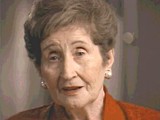
-
Ludmilla Page describes a celebration of Oskar Schindler's birthday in Bruennlitz toward the end of the war
Oral HistoryLudmilla was born to an assimilated Jewish family in Kishinev, Romania. She and her mother, a physician, were living in Poland when the Germans invaded on September 1, 1939. They were taken to Krakow. Ludmilla was forced to live in the Krakow ghetto; her mother was sent to the Warsaw ghetto. Ludmilla worked in a factory at the Plaszow labor camp for a businessman who was a friend of the German industrialist Oskar Schindler. In October 1944, Schindler attempted to save some Jewish workers by relocating them…
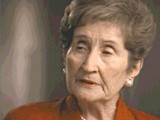
-
Emanuel Tanay describes the establishment of the Miechow ghetto
Oral HistoryEmanuel and his family lived in the small town of Miechow, north of Krakow. After Germany invaded Poland in September 1939, persecution of Jews increased. The Germans established a ghetto in Miechow. Emanuel was forced to live in the ghetto. Emanuel, his mother, and his sister escaped from the ghetto before it was destroyed in 1942. He stayed in a monastery, under an assumed identity, along with members of the Polish underground. Emanuel left the monastery after about a year when a teacher began to suspect…
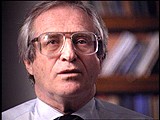
-
Invasion of Poland, Fall 1939
ArticleThe German invasion of Poland in the fall of 1939 triggered WWII. Learn more about key dates and events, causes, and related Holocaust history.
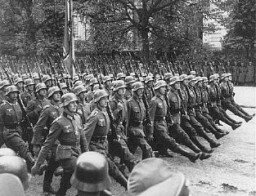
-
Portrait of three-year-old Estera Horn
PhotoPortrait of three-year-old Estera Horn wrapped in a fur coat. Chelm, Poland, ca. 1940. Estera was born in January 1937. Her father was killed soon after the Germans invaded Poland. Estera and her mother, Perla Horn, were forced into the ghetto in Chelm. At the end of 1942, during the liquidation of the ghetto, Perla and Estera escaped from the ghetto. They hid in nearby villages. In late 1943, Perla asked a family in Plawnice to take care of Estera. Perla tried to hide with a group of Jews in the nearby…
